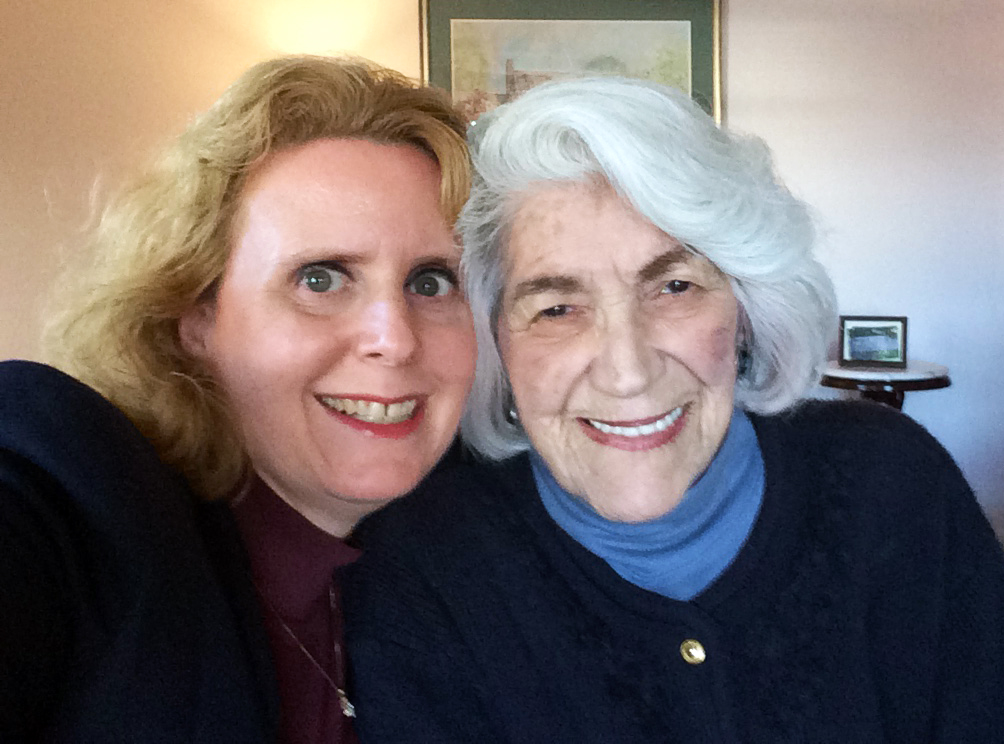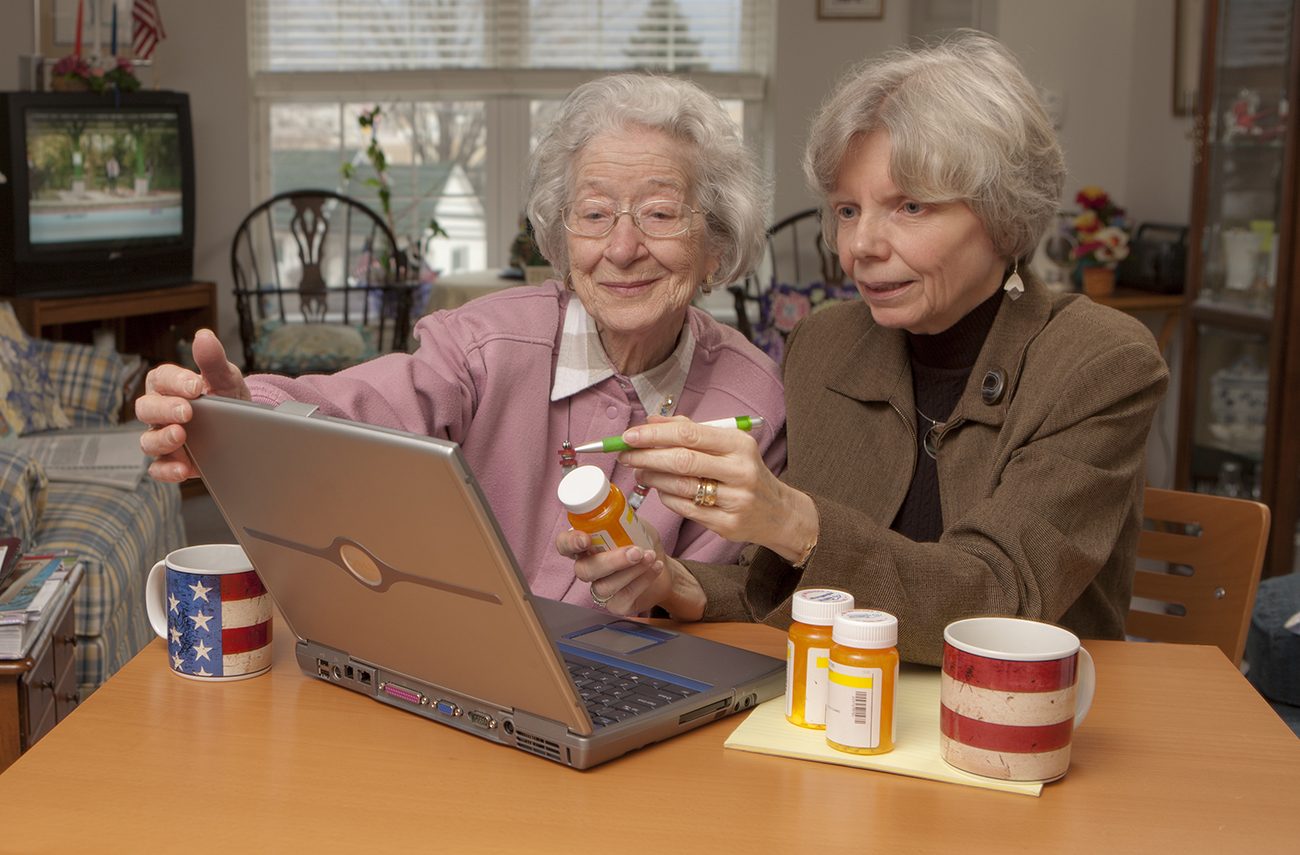More than 50 years ago, Linda Prisco was married at St. Monica Parish in South Philadelphia. Now, thanks to a program initiated by that parish, she and her husband are able to stay in the neighborhood where they’ve raised a family and built their lives.
Currently administered through the Archdiocese of Philadelphia’s Catholic Housing and Community Services (CHCS), the Parish-Based Eldercare Program provides a range of in-home support services to seniors.
Help with accessing government benefits topped the list of services provided last year, according to CHCS, followed by assistance with medical services and equipment, health insurance, home care and transportation services, and legal aid.
Care managers also helped with mental health services and, if needed, alternative housing for their clients.
[hotblock]
Through the program, CHCS employs a care manager who works within the boundaries of a given parish to address the needs of aging parishioners.
Adults who would benefit from the program are identified through a collaboration among the care managers, pastors, parish staff and volunteers who visit the homebound, such as members of the St. Vincent de Paul Society and extraordinary ministers of holy Communion.
Care managers conduct extensive in-home assessments, which are then used to create individualized plans that incorporate clients, family members, local businesses and senior service providers. Parishes provide the care managers with office space as well as telephone and internet access, while CHCS covers salaries, benefits, computer equipment and cell phones.
Within the five-county archdiocesan area, the 11 participating parishes include St. Monica and its worship site, St. Edmond, in South Philadelphia; St. Katherine of Siena, St. Dominic and St. Christopher in Northeast Philadelphia; St. John the Baptist in the city’s Manayunk section; St. Andrew the Apostle in Drexel Hill; Holy Saviour in Norristown; St. Maria Goretti in Hatfield; St. Rose of Lima in North Wales; Our Lady of Good Counsel in Southampton; and St. Joseph in Downingtown.

Parish-based care manager Jennifer Rose (left) has worked for five years with client Sande Pizza of Holy Saviour Parish in Norristown. (Photo courtesy of Jennifer Rose)
From July 2018 to June 2019, the program’s seven social workers served more than 1,400 clients through over 2,100 visits.
For Prisco, who learned of the outreach through her parish’s bulletin, the program is “one of the greatest” outreaches of the local Catholic Church.
“They’ve offered me a lot of help, with getting my meals, products I need and with paperwork,” said Prisco.
In addition to practical support, care managers provide “emotional help” and a sense of reliability unmatched by many other senior service agencies.
“A lot of times, other programs are late, or don’t come the days they’re supposed to come,” said Prisco, who describes her care manager as a “friend.”
That level of comfort and confidence is essential to the program’s success, said James Amato, archdiocesan Secretary for Catholic Human Services.
“Parish-based interventions can be more efficient because they’re more trusted,” said Amato, noting that a pastoral visitor is often “the first person from the outside” to connect with seniors who are homebound and socially isolated.
Amato shared his insights during an Oct. 21-22 conference hosted by CHCS and Catholic Charities USA at the Archdiocesan Pastoral Center, where some 24 representatives from 12 dioceses throughout the country gathered to learn about CHCS’s program model.
[tower]
During the conference, Father Joseph Kelley, pastor of St. Monica Parish, said that the outreach had originated with his predecessor, Msgr. Aloysius F.X. Farrell, who was “ahead of his time” in seeking to establish a nursing home within the parish boundaries.
Through an inheritance from a relative, Msgr. Farrell pursued the initiative, which was ultimately built after his death and later sold as part of an archdiocesan-wide divestment of nursing home facilities.
In 2003, longtime Catholic Social Services employee Bonney DosSantos worked with Father Kelley to found St. Monica’s parish-based eldercare program, which CHCS has since embraced and expanded.
Speaking at last month’s conference, DosSantos highlighted several advantages that distinguish the program from other senior supports.
“We don’t have defined timelines,” she said, adding that in Philadelphia, seniors are generally allotted four to six months of government-funded home-based services at a given time. “We can stay involved with clients as long as possible.”
In addition, DosSantos said, the program’s care managers “see the whole picture, rather than a snapshot” of their clients in the home setting, and can assess their needs more fully.
The program addresses a critical and rapidly expanding need, said CHCS director John Wagner, who serves as deputy secretary for archdiocesan Catholic Human Services.
Pennsylvania alone is facing “a virtual tsunami of aging,” Wagner said during his opening remarks at the conference, stressing that in-home care programs will become even more vital in the coming decades.
According to the U.S. Census Bureau, the nation’s older adults will outnumber its children by the year 2034, a historical first for the country.
[hotblock2]
Senior housing cannot keep up with the increased demand, said Lisa Shousky, the care manager for St. Katherine of Siena, St. Christopher and St. Dominic parishes.
“It’s a challenge I face in all three parishes,” said Shousky, citing the “lengthy wait lists of up to three years” her clients face for available senior living units.
Even with the prospect of senior housing, many older adults prefer to remain in familiar surroundings.
“These caregivers make you feel independent,” said Angelina Realdine of St. Monica Parish. “I feel like I’m able to stay in my own home, knowing they’re so much help to me. It’s a whole bunch of little things; they go to the store for me, start dinner if I’m not feeling good, lift my spirits if I’m feeling low.”
The elder care program helps the parish community as a whole, said Father Kelley, thanks to the involvement of youth and adult volunteers as well as program staff.
“The parish becomes what it should be,” he said. “It’s a group of people united in caring for one another.”
PREVIOUS: Wayne-based executive named to national Catholic council
NEXT: Couple donates Radnor mansion to train Augustinian friars



Share this story